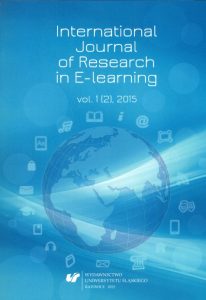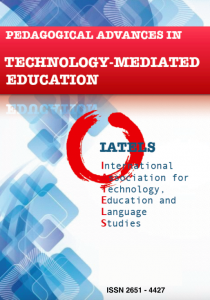To become a presenter at the conference, an applicant must submit:
- An abstract of the presentation (up to 250 words);
- Short bio (up to 100 words);
- Formal picture in a good quality;
- A manuscript for publishing in the conference proceedings (a conference paper must not exceed 5000 words in length (2000 words for work in progress papers), including abstract, figures, references and appendices);
- A full paper for publishing in a journal or a book of chapters (optional).
An abstract, short bio(s) of the authors, author(s)’ formal picture(s) and a manuscript of the conference paper up to 5000 words must be submitted before the conference.
A full paper should be submitted within 1 month after the end of the conference.
The conference scientific committee keeps the right to decide on the destination of the manuscripts’ publication (conference proceedings / journal / book of chapters).
The author(s) who submitted manuscripts only can be requested to extend them to the volume and format of a full paper for publishing them a journal or a book of chapters.
Consequently, the authors can have 3 publications:
- Abstract in a Book of Abstracts (with ISSN / ISBN number),
- Conference Paper in the Conference Proceedings (with ISSN / ISBN number),
- Full Paper / Chapter in the recommended journal or in a Book of Chapters (with ISSN / ISBN number)
Book of Abstracts
All the accepted abstracts are going to be published in the Book of Abstracts with ISSN / ISBN number.
The publication in the Book of Abstracts consists of an abstract accompanied with the author(s)’ short bio(s) and their pictures.
Please be sure to submit an abstract up to 250 words, a short bio of each author (50-100 words) and a formal picture in a good quality of each author.
The applications must be uploaded to the conference website!
Conference Proceedings
All speakers and presenters are required to submit a manuscript up to 5000 words for reviewing and publishing as a conference paper in the conference proceedings with ISSN / ISBN number.
Be sure to submit a manuscript into the conference website system before the conference together with the abstract and other required information.
The manuscript for a conference paper must be structured as follows:
- An abstract,
- A title,
- An introduction,
- Objectives,
- A methods section,
- Results/findings,
- Discussion of findings,
- Conclusion/recommendations,
- Acknowledgments,
- References.
The registration is considered as completed if an applicant has submitted timely:
- An abstract up to 250 words,
- A short bio of each author (50-100 words),
- A formal picture in a good quality of each author,
- A manuscript of a conference paper (not exceeding 5000 words in length (2000 words for work in progress papers), including abstract, figures, references and appendices),
- A copy of the bank slip about the registration fee payment mailed to apbm.iatels@gmail.com
Full Paper Publication
All applicants are invited to submit their full papers for their reviewing and publishing in the journals affiliated with the conference or in a book of chapters.
The organising committee of the conference reserve a right to request the author(s) to extend their conference papers to the volume and format of a full paper to be included into a regular issue of a journal or a book of chapters.
The volume of a full paper for publishing in a journal should be about 8000 words.
The volume of a paper for publishing in a book of chapters should be about 10000 words.
The organising committee preserves the right to guide the authors in their choice of the publication opportunity (a journal or a book of chapters) depending on the topic of their research, its scope and overall content of the submitted papers.
The authors are going to be guided about their submissions and their amendments till the final stage of the publishing process.
The full paper publishing process launches after the conference.
Conference Journals
 International Journal of Research in E-learning The theme and the priorities of the IJREL reflect the conceptual principles underlying the modernization of education and the reform of the educational systems in European countries, as well as national development strategies for the XXI century. One of the European Union’s key educational objectives is the provision of equal opportunities for all with regard to access to learning and knowledge, regardless of gender, financial and physical ability, and place of residence. That is why, distance learning has now been granted a status of high priority. If introduced on a wide scale, distance learning and teaching may make significant contribution towards the achievement of educational goals in member states.
International Journal of Research in E-learning The theme and the priorities of the IJREL reflect the conceptual principles underlying the modernization of education and the reform of the educational systems in European countries, as well as national development strategies for the XXI century. One of the European Union’s key educational objectives is the provision of equal opportunities for all with regard to access to learning and knowledge, regardless of gender, financial and physical ability, and place of residence. That is why, distance learning has now been granted a status of high priority. If introduced on a wide scale, distance learning and teaching may make significant contribution towards the achievement of educational goals in member states.
The topics of the IJoRiEL include:
1) E-learning and Intercultural Competences Development in Different Countries
- Legal, social aspects of distance learning in different countries;
- Psychological and ethical aspects of distance learning in different countries;
- Teacher-student and student-student relationships in distance learning;
2) Theoretical, methodological and practical aspects of distance learning:
- Theoretical and methodological aspects of distance learning;
- Successful examples of e-learning;
- Distance learning of humanities: native and foreign language, philosophy, history, ect.;
- Distance learning of science and mathematics;
- Quality of teaching, training programs and аssessment
- E-learning for the disabled;
3) Distance learning and lifelong learning:
- Computer training, for prospective and actual teachers, in distance learning;
- Lifelong learning supported by distance learning;
- Personnel, scientific, information and library services.
4) E-learning in the Development of the Key Competences
- Key competences in the knowledge society;
- Use of e-learning in improving the level of the students’ key competences;
- Teachers’ and learners’ competences in distance learning and computer science;
5) Multimedia in distance learning:
- Multimedia means in distance learning;
- Multimedia tools in distance learning;
- Multimedia resources and didactic materials;
- Video-tutorial design.
6) Other alternative methods, forms and techniques in distance learning:
- simulations, models in distance learning;
- collaboration work in distance learning;
- distance learning systems;
- m-learning.
 International Journal of the Linguistics, Literature and Culture The editorial board welcomes submissions that provide insights into key issues dealing with the English Language in a region that hosts multicultural/lingual communities and contexts. Our policy is to enable the advancement of knowledge dealing with English Language studies in these communities and contexts by providing a publication avenue for new and insightful multidisciplinary work in the region.
International Journal of the Linguistics, Literature and Culture The editorial board welcomes submissions that provide insights into key issues dealing with the English Language in a region that hosts multicultural/lingual communities and contexts. Our policy is to enable the advancement of knowledge dealing with English Language studies in these communities and contexts by providing a publication avenue for new and insightful multidisciplinary work in the region.
The scope of the journal is broad and it includes but not limited to the following topics:
Linguistics: Micro Linguistics, Macro linguistics, Applied linguistics, Translation studies, Contrastive analysis, Education field, Language, Cognitive, Anthropology, Psychology, Phonetics, Stylistics, Philosophy of Language, Psycholinguistics, Sociolinguistics, Ethnolinguistic, Phonology, Semiotics, Epigraphy, Palaeography, Applied field, Language teaching, Lexicography, Applied phonetics, Applied sociolinguistics, Development of an International Language, Development of Special Language, Medical, Linguistics, Graphology, etc
Literature: Literature studies, Poetry, Prose, Essay, Drama, Novel, Philology
Culture: Cultural studies, Cross-cultural studies, Art, Politics of language, Religion, Customs, Humanities, Archeology, Physiology, History studies, Tourism
 International Journal on Pedagogical Advances in Technology-Mediated Education IJPATME is International Journal on Pedagogical Advances in Technology-Mediated Education, established by IATELS, International Association for Technology, Education and Language Studies. IJPATME is an electronic peer-reviewed, interdisciplinary academic journal that publishes the latest in research reports and critical analyses in education for both theorists and practitioners.
International Journal on Pedagogical Advances in Technology-Mediated Education IJPATME is International Journal on Pedagogical Advances in Technology-Mediated Education, established by IATELS, International Association for Technology, Education and Language Studies. IJPATME is an electronic peer-reviewed, interdisciplinary academic journal that publishes the latest in research reports and critical analyses in education for both theorists and practitioners.
The Journal addresses the following primary areas of research interests:
1. Educationaltheories and their applications, featuring findings from a variety of disciplinary perspectives, including social, behavioral, physical, and computational sciences;
2. The design and development of educational technology;
3. The interpretation and implications of research in education of different levels;
4. The theoretical and historical foundations of ICT-enhanced education;
5. Educational theories and practices;
6. Language teaching: theories, approaches and practices;
7. Teaching engineering disciplines with the applications of technologies;
8. Social studies in the digitalised world.
